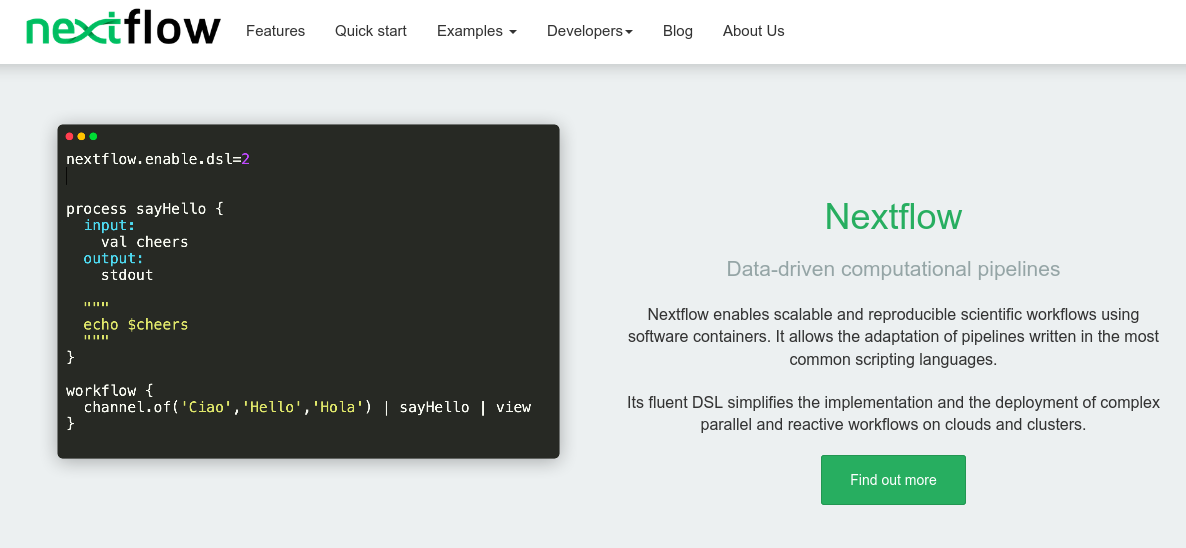Nextflow
You know I’m all about those workflows, about those workflows, no trouble! I’m all about those workflows, about those workflows, no trouble!
Seriously, workflow managers and orchestration tools make the scientific computation world go round! Our showcase would simply not be complete without sharing Nextflow,

If you already know about NextFlow, we encourage you to contribute to the research software encyclopedia and annotate the respository:
otherwise, keep reading!
- What is Nextflow?
- How do I cite it?
- How do I contribute to the software survey
- Where can I learn more?
What is Nextflow?
There are many good choices of workflow managers for scientific pipelines, and NextFlow is definitely one of the leaders! What makes it special?
Nextflow is a bioinformatics workflow manager that enables the development of portable and reproducible workflows. It supports deploying workflows on a variety of execution platforms including local, HPC schedulers, AWS Batch, Google Cloud Life Sciences, and Kubernetes. Additionally, it provides support for manage your workflow dependencies through built-in support for Conda, Docker, Singularity, and Modules.
But what makes NextFlow stand out is the user community! There is an entire repository, nextflow-io/awesome-nextflow with easily ~170 community pipelines. Working on community workflows, or modules for workflows, is a great way to practice reproducible science.
One cool thing about NextFlow is that the creators created a company called Seqera, which seems to offer biomedical analyses as a service, called Tower. I haven’t tried any of the services, but it’s empowering to see that an open source project can figure out a service model to be sustainable. You can also check out Tower on GitHub. Please let me know if you try it out!
How do I cite it?
Nextflow was published in Nature Biotechnology:
Di Tommaso, P., Chatzou, M., Floden, E. W., Barja, P. P., Palumbo, E., & Notredame, C. (2017). Nextflow enables reproducible computational workflows. Nature Biotechnology, 35(4), 316–319. doi:10.1038/nbt.3820
You can read about the publication here.
How do I get started?
You might visit any of the following links!
- The GitHub Repository is always a good place to start.
- Community Pipelines on GitHub
- Getting Started
- NextFlow on Gitter
You can also post questions on the GitHub issues board.
How do I contribute to the software survey?
or read more about annotation here. You can clone the software repository to do bulk annotation, or annotation any repository in the software database, We want annotation to be fun, straight-forward, and easy, so we will be showcasing one repository to annotate per week. If you’d like to request annotation of a particular repository (or addition to the software database) please don’t hesitate to open an issue or even a pull request.
Where can I learn more?
You might find these other resources useful:
- The Research Software Database on GitHub
- RSEpedia Documentation
- Google Docs Manuscript you are invited to contribute to.
- Annotation Documentation for RSEpedia
- Annotation Tutorial in RSEng docs
For any resource, you are encouraged to give feedback and contribute!
Recent Posts
- Posted on 21 Mar 2021
- Posted on 07 Mar 2021
- Posted on 21 Feb 2021
- Posted on 21 Feb 2021